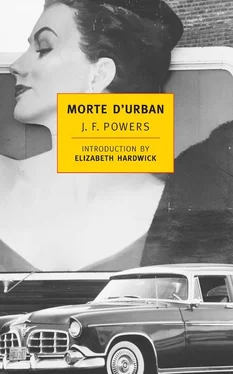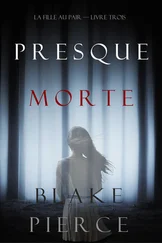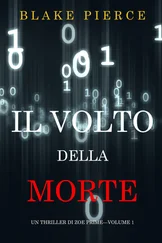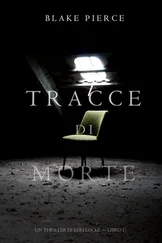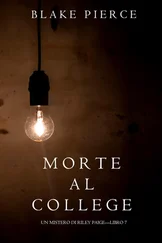“Norris? He’s a wheat broker. Say, how’s the old head?”
“Needs a haircut, as you can see. That’s all,” said Father Urban, though he was still troubled by headaches. He didn’t like the way Monsignor Renton looked at him — at his head, as if there might be something wrong with it.
“I see the girl’s still driving you around.”
“There’s a reason for that, and it’s not what you think, I’m afraid.” There was no longer any need for Katie to drive him around, Father Urban explained. He let Mrs Thwaites go on thinking there was, though, and thus Katie got a chance to attend daily Mass. There was another reason why Father Urban wasn’t driving himself, but this he didn’t mention to Monsignor Renton who would have made too much of it. The key to the car had to be checked in and out with Mrs Thwaites, who kept it on her person, pinned to her breast when the car wasn’t in use.
“Here’s something I’ve been wanting to ask you,” Monsignor Renton said, and then seemed to think better of it.
“Go ahead. Shoot.”
“Well, at the time of your accident, when the ball hit you—”
“I thought somebody’d opened a bottle of champagne,” said Father Urban, and looked him right in the eye.
Returning to Lake Lucille, Father Urban noticed that Katie was weeping. “Hey, what’s the matter?” he said, scooting forward on the back seat. “Pull over to the side.”
It took Father Urban a while to find out what was wrong. “All right,” he said. “So you’re homesick. So why don’t you go home for a visit? If you like, I’ll speak to Mrs Thwaites about it. Now, how’s that ?” Then it came out that Katie didn’t have the fare back to Ireland. During her first months with Mrs Thwaites (Katie had been with her about a year), she had sent most of her earnings home, but she hadn’t been doing that for some time. For the last six months, Mrs Thwaites had been winning Katie’s wages away from her. “At dominoes ! I never heard of such a thing. How much?” Katie didn’t know how much, all told, but a lot. Katie was broke, and worse than broke. She owed Mrs Thwaites close to seven hundred dollars. “Well, I’ll be damned. Look. You leave this to me.”
Mrs Thwaites was beginning her day. Father Udovic had brought her communion, she’d had her breakfast, and her sets were on. She turned down the sound.
“I’ve just met a damsel in distress,” Father Urban said, smiling. “Katie. The poor kid thinks you mean to hold onto this money. ‘Nonsense,’ I said. ‘She’s just keeping it for you. She’s just having her little joke . Just trying to make it interesting.’” Father Urban was offering the old lady a role that would greatly become her, and before she could reject it, he presented the case for being good to Katie. While he did so — splendid type… alone in a strange country… very high regard for you, ma’am… hard to find another like her… could be arranged so there’d be no question of her not coming back to you — while he did so, Mrs Thwaites stared hard at the floor. When Father Urban paused, to give her a chance to speak, she turned up the sound.
So. Even so, Father Urban was serene. There was nothing in his attitude that would hinder Mrs Thwaites should she wish to change her mind and accept the good offices of one who was not only friend to her but to her house and therefore solicitous for its well-being. However, he did step over to the table and examine one of the dominoes. The truth was he thought the old lady must be using a marked deck. He saw nothing suspicious about the domino, though, and dropped it— plink —back among its fellows. Then he walked to the door, taking his time, hoping she’d call him back. She didn’t. “I’ll leave the door open, as I found it, ma’am,” he said, which got no response at all, and, so, he left her — hoping she’d see the significance of his last remark.
When Katie brought his breakfast, he said, “Well, I spoke to her, Katie. Don’t worry.” When Katie brought his tray again, at twelve-thirty, he asked for news from the front.
Katie said that the dominoes had disappeared from the table.
“Oh? And was anything said?”
“No, Father.”
“Well, don’t worry, Katie. This may take a little time.”
But Father Urban wasn’t hopeful. Children, how hard is it for them that trust in riches to enter into the kingdom of God . And still Father Urban did not despair.
The Hopwoods arrived from Minneapolis in the middle of the afternoon. Their voices, coming from Mrs Thwaites’s room across the corridor, reached Father Urban in his room. He heard them before, during, and after tea. For some time after that, he kept listening for a knock on the door, and found it difficult to concentrate on his reading. Finally, as a discipline, he took up his pen and wrote to Billy, intending to describe events leading up to his recent accident, which, apart from his headaches, might be regarded as a means to a good end (as is so often the case with our misfortunes), and to describe the beauty of summer at Lake Lucille, as seen from one man’s casement window, earth, sun, sky, and water, the green, the gold, and the blue, blue, blue of God’s plenty, and all for us, and so on. But, as it turned out, Father Urban said nothing about his present surroundings, about summer, or about his accident. His position in the household was now so odd and uncertain that he didn’t care to dwell on it. He preferred to await developments. And there was really no way to describe his accident that wouldn’t perhaps lower him in Billy’s estimation.
When the knock did come, it was Katie with his evening meal.
“What’s going on around here?” he asked.
“Just the usual, Father.” Katie said that Mrs Thwaites had spent the afternoon talking business with Mr Hopwood — he helped her with her investments — and that Mrs Hopwood had gone out with “Tilly.”
“Oh?” said Father Urban, though he’d seen Sally doing this from his window. “Alone?”
“She often does that, Father.”
“And now what’re they doing?”
“Now they’re eating downstairs.”
“The Hopwoods.”
“And Mrs Thwaites. She sometimes does that when they’re here.”
Father Urban thought about this for a moment. “Do they know I ’m here?”
“The Hopwoods? I don’t know that they do, Father. Would you like me to tell them?”
“No, of course not,” said Father Urban, and when Katie returned for his tray later, he said nothing.
That evening Father Urban got his things together. He was downstairs, returning books to the library, when Mr Hopwood walked in—“to investigate the noise,” he said. “Heh, heh.” Mr Hopwood was perhaps forty-five, bespectacled, a neat, smallish man, with a large head such as illustrators for the old American Weekly used to give members of the human race in the not-too-distant future. “Thought you were a ghost,” he said. “Heh, heh.”
“Afraid not,” said Father Urban, and introduced himself. “I had an accident a couple of weeks ago, and I’ve been recuperating here, but perhaps you knew that.”
“No, to tell you the truth, I didn’t. We just arrived this afternoon. Nothing serious, I hope.”
“The accident? No.”
Mr Hopwood, of course, was waiting for more.
And so Father Urban, rather than have it thought that there hadn’t been an accident and that he was the kind of clergyman who preyed on rich old women, said, “As a matter of fact, I got hit in the head by a golf ball.”
“Sometimes a thing like that can be serious.”
“Not with a head like mine,” Father Urban said, with a smile.
“Heh, heh. Will you be here long?”
Читать дальше
